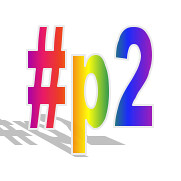A tidal wave in progress? I ♥ Innovation at the Women 2.0 PITCH Conference
The sold-out Women 2.0 PITCH Conference’s opening keynote features Caterina Fake, co-founder of Flickr and Hunch,* on “Making and the True Path.” The rest of the sessions look great too: case studies by Robin Chase of Zipcar and Julia Hu of Lark, and the “$50 Million Panel” featuring Deena Varshavskaya of Wanelo, Leah Busque of TaskRabbit, and Sheila Lirio Marcelo of Care.com. There are a bunch of intriguing finalists for the pitch competition — including Tara Hunt’s Buyosphere! And the judges for the competitions are no slouches either: Aileen Lee of Kleiner Perkins, Dave McClure of 500 Startups, Naval Ravikant of AngelList, Sukhinder Singh Cassidy of JOYUS … looks like a #diversitywin to me, and some great networking too!
A couple of weeks ago I had coffee with Pemo Theodore, who’s interviewed dozens of investors and entrepreneurs for her excellent Why are Women Funded Less than Men?. We both had the same feeling: momentum has steadily built over the last couple years** and it feels like there’s a tidal wave in progress. The women-in-tech and women-near-tech communities are extraordinarily well networked. And the data is compelling. Here’s Vivek Wadhwa’s summary from his recent Inc article:
An analysis performed by the Kauffman Foundation showed that women are actually more capital-efficient than men. Babson’s Global Entrepreneurship Monitor found that women-led high-tech startups have lower failure rates than those led by men. Other research has shown that venture-backed companies run by women have annual revenues 12 percent higher than those run by men, and that organizations that are the most inclusive of women in top management positions achieve a 35% higher return on equity and 34% higher total return to shareholders.
So while there’s still a long way to go, the trend is in the right direction. Kudos to all the amazing women, the much smaller number of equally-amazing guys, and the outstanding organizations like Women 2.0, the Anita Borg Institute, Astia, Pipeline Fellowship, Women Who Tech, She’s Geeky, the Level Playing Field Institute, Geek Feminism and so many others how have worked so hard to make this happen!
Combine the momentum and community with great content and plenty of opportunity for networking, and it should be a great conference.  I’ll be live-blogging it in comments — and feel free to jump in as well. Stay tuned!
jon
* and strong pseudonymity advocate!
** here on Liminal States threads like Guys talking to guys who talk about guys, A #diversitywin as an opportunity, Fretting, asking, and begging isn’t a plan, The third wave and the anatomy of awesome, and Changing the ratio have some of the highlights







 Even over the three-day weekend here in the US we continue to see some excellent discussions, for example Qworky advisor Gayle Laakmann’s
Even over the three-day weekend here in the US we continue to see some excellent discussions, for example Qworky advisor Gayle Laakmann’s 
